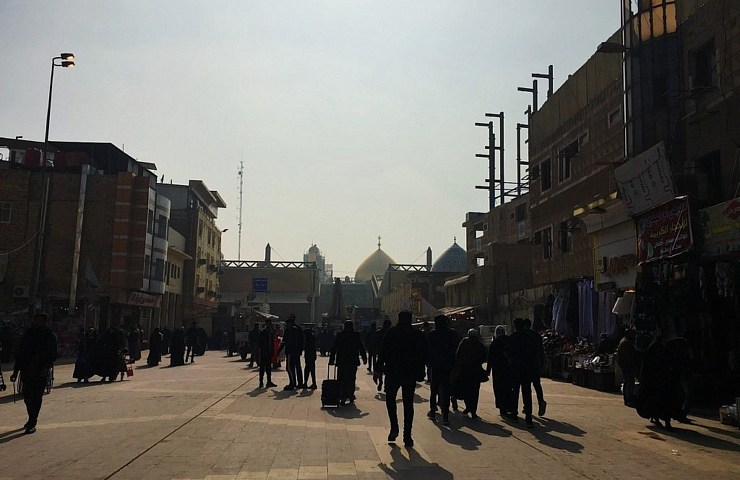I was lucky to be away from the devastation and persecution that followed the US invasion of Iraq in 2003. From the corruption that rotted the government and private institutions, to the death of thousands based on their name, Iraq has always been in the news since the 1980’s. However, it’s presence in the media is different now, or so I wanted to say.
Many of you have heard the news of General Qasem Soleimani’s death. Many people mourned, many celebrated, and many feared. In Iraq, people were concerned because Iran will retaliate, but when, where and how? Soleimani had tight control of Iraqi politics and was the center of the Iraqi protests that started in October. It was during these protests that many of the protesters demanded his removal from Iraq and for his war atrocities against the Iraqi people. On the other hand, I then heard that many people believed that he was saving Iraqis from the brutality of the non-Islamic State of Iraq and Syria (ISIS), but the opposite is the truth. Even though his initial presence in Iraq was to improve Iraq’s “security” by fighting ISIS and ridding them out of Iraq, Soleimani was the center of many atrocities against the Sunni tribes in Mosul, Anbar, and Tikrit. Furthermore, with the start of the October peaceful protests, him and his militias started attacking, kidnapping, and torturing many Iraqis who were peacefully protesting.
Soleimani’s death may have been just, but its execution was not. Attacking a foreign general in a different sovereign state is the right of no one. By ordering the airstrike, President Trump undermined the sovereignty of my country, and caused it to go into a spiral of chaos.
Imagine this: you are sitting alone in your house, when suddenly a rock gets thrown into your house breaking your window. You get up and see two people fighting with each other, however, instead of solving it between themselves, they begin throwing rocks at your house while yelling at each other. That is a simplified version of what Iraqis are feeling. We were dragged into a problem we have no say in, and yet we are the ones getting hit.
Soleimani’s death was in Iraq not Iran. Iran’s attack on the US base was not in the US but in Iraq. The rocket launches that injured a family were also in Iraq, and the constant fear of instability that both countries are threatening are against Iraq. After the death of Soleimani, Iranian backed militias increased their attacks on protestors. In the southern Iraqi city of Basra, reporters and journalists are being kidnapped and killed, blocking the truth from coming out. Furthermore, undeclared and unannounced missile and rocket launches in the Green Zone causing more unrest.
The underlying problem in the assassination is that the people who will be affected by this war (or proxy war) have no say in their government’s actions, but are sadly being classified as collateral damage. As I write this, there are protests erupting in Iraq and Iran, both against the governments that supposedly represent them. Both are protesting because of corruption and the suppression of freedom of speech.
Soleimani’s death was in Iraq not Iran. Iran’s attack on the US base was not in the US but in Iraq; the rocket launches that injured a family were also in Iraq, and the constant fear of instability that both countries are threatening are against Iraq. After Soleimani’s death, Iranian backed militias increased their attacks on protesters. In the southern Iraqi city of Basra, reporters and journalists are being kidnapped and killed, blocking the truth from coming out. Furthermore, undeclared and unannounced missile and rocket launches in the Green Zone causing more unrest.
The Iraqi people just want one day where they do not have to look up to the sky frightened; just one day, where we can look up and see the blue sky clear from any missiles and drones. Just one day where we do not have to go underneath our table fearing for our own lives. Let us live for one day and stop using our country and our people as a justification for everyone’s wars. The Iraqi people do not side with Iran, and nor do we side with the United States. We side with our country— the country that is always neglected and is considered “collateral damage”. We stand for Iraq.
Featured image is of the city of Najaf in Iraq. Photo by Ambarina Zenab. Check out her photography and illustration work on Instagram, @ambarinazenab.





Recent Comments